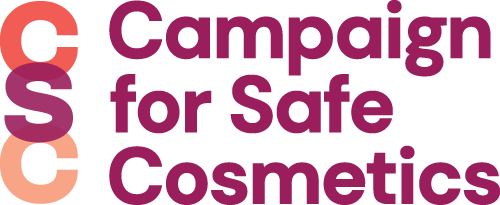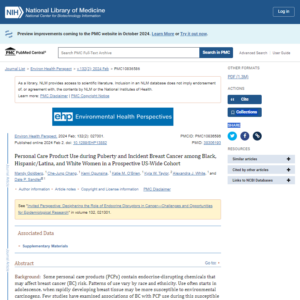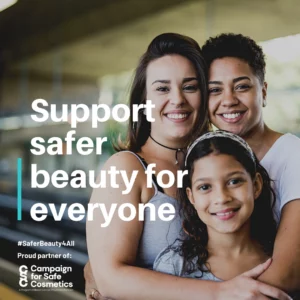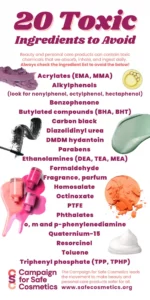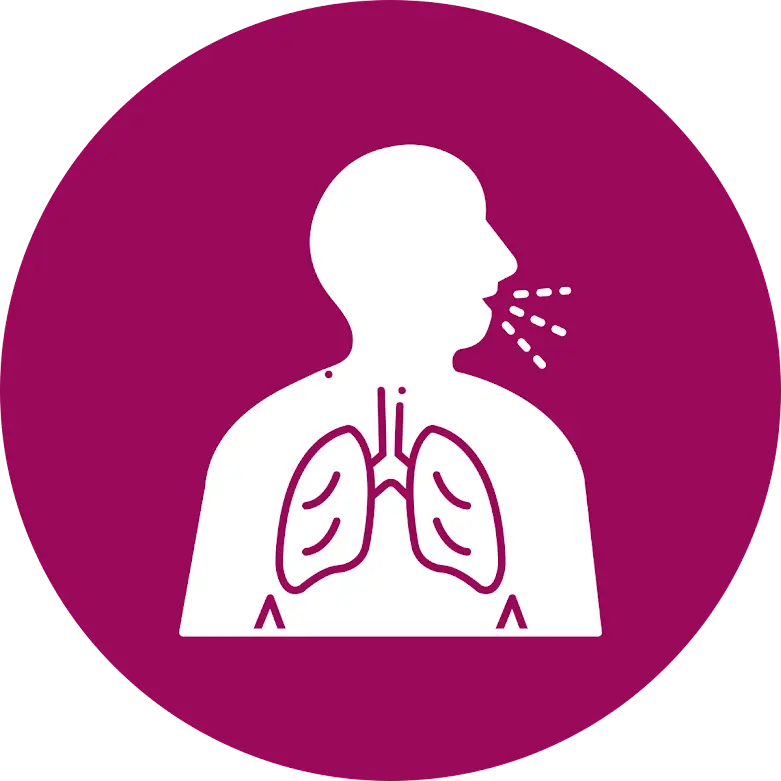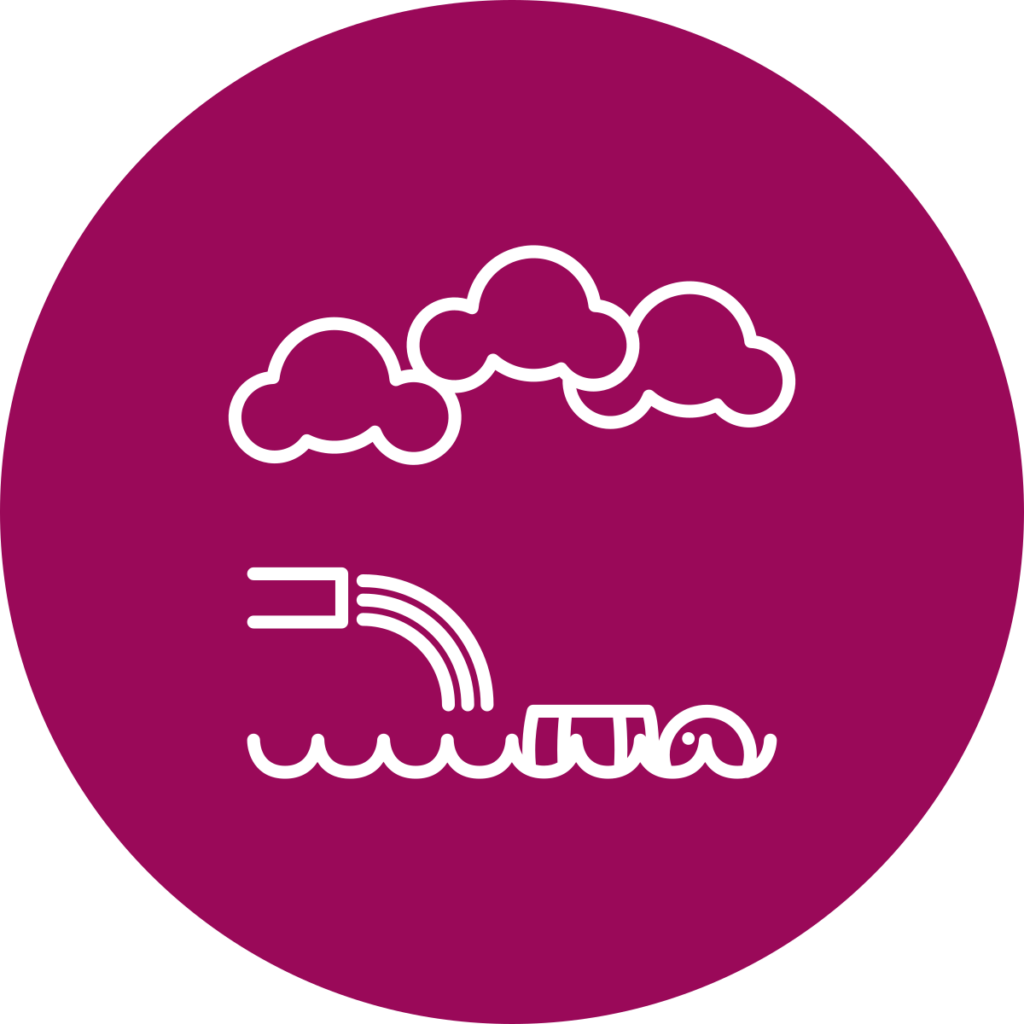Introduction
Some women with curly hair would do anything for straight hair; but when offered the choice between formaldehyde and frizz, which would you choose? Lots of products on the market and in salons are promising just that – fuss-free straight hair that lasts for months. While that may sound appealing at first, you likely aren’t being told about the short and long-term adverse health effects associated with these products. Hair-straightening products are notorious for their negative impacts on human health, and given the chemistry needed to straighten naturally curly hair, it’s no wonder!
What’s in Those Hair Straighteners
Formaldehyde: Many brands of Brazilian keratin smoothing treatments contain high levels of one of the worst of the worst chemicals, formaldehyde, which is a well-known carcinogen and embalming fluid.
Long-term exposure to formaldehyde in the workplace has been associated with an increased risk of cancer. Salon workers performing Brazilian keratin straightening treatments have reported difficulty breathing, nosebleeds, rashes, and stinging eyes; some customers have reported hair loss after the treatment.
Brazilian Blowout: A Case Study for Regulatory Reform
Brazilian Blowout is the poster child product for cosmetics reform. In 2010, Canada, France, and Ireland pulled Brazilian Blowout from shelves due to safety concerns for workers; Oregon OSHA and Connecticut Department of Health issued health warnings; and the California Attorney General filed a lawsuit against the company in 2010. The Cosmetics Ingredient Review Panel, a group of industry representatives that regulates cosmetics nationally, found the levels of formaldehyde and methylene glycol in these products cannot be verified as safe and urged the maker of Brazilian Blowout to pull it from the market. But, because the CIR’s findings are not binding, the manufacturer does not have to comply.
Even the cosmetics industry trade group, the Personal Care Products Council, asked the FDA to intervene.
In 2011, the FDA sent the CEO of Brazilian Blowout a warning letter for selling an adulterated and misbranded cosmetic. But no action was taken by the FDA beyond the warning letter, due to the fact that the law regulating cosmetics, which was passed in 1938, does not authorize the FDA to issue a mandatory recall of dangerous, misbranded or adulterated cosmetic products.
Brazilian Blowout is still on the market today and available at many salons across the nation. The most significant action taken against Brazilian Blowout was the result of the California Attorney General’s lawsuit; federal authorities were unable to act beyond issuing toothless warnings. The settlement reached between California and Brazilian Blowout forced the company disclose its hazards, including affixing caution stickers to the product warning consumers the product releases formaldehyde, to stop its deceitful advertising, and pay a $600,000 fine.
The Lesson?
Even a product that is demonstrably unsafe, that fails to meet basic standards set by the self-regulating cosmetics industry, and is determined to be “adulterated and misbranded” by the FDA can remain in use if the manufacturer is unwilling to voluntarily remove it from the marketplace. Protections for the health and safety of the consumer are not prioritized under current law, which is just one reason why the Campaign for Safe Cosmetics is advocating for federal legislation to more strictly regulate the cosmetics industry.
Timeline
- After the first salon worker complaints surfaced in Oregon in October 2010, other countries such as Ireland, France, Australia, Canada and Cyprus recalled formaldehyde-containing hair straighteners based on their own testing. Soon after, the Campaign for Safe Cosmetics and other advocates called on the FDA to recall the products.
- In March 2011, the Cosmetics Ingredient Review, the industry-funded panel of scientists tasked with reviewing the safety of cosmetic products in the U.S., declared that it could not conclude that formaldehyde exposure from these types of products is safe.
- In April 2011, the federal Occupational Safety and Health Administration (OSHA) issued a hazard alert warning against the use of hair straighteners containing formaldehyde.
- Also in April, the California Attorney General filed an injunction against Brazilian Blowout, seeking to require health warnings on the products. It was the first enforcement action the state has taken under the California Safe Cosmetics Act, a 2005 law enacted with help from the Campaign for Safe Cosmetics.
- In May 2011, 10 members of Congress wrote a letter to the FDA expressing their deep concern regarding formaldehyde-containing hair-straighteners and asking the agency to take immediate action to protect workers and consumers.
- In August 2011, nearly a year after the first complaints, the FDA sent a warning letter to Brazilian Blowout stating that its product is “adulterated and misbranded.” The August letter gave Brazilian Blowout until September 12, 2011 to comply. In September, the Campaign for Safe Cosmetics and the National Healthy Nail and Beauty Salon Alliance followed up with a letter to the FDA asking for more: a public accounting of Brazilian Blowout’s response to the FDA warning, a voluntary recall and an investigation of other similar hair-straightening products on the market.
- In September 2011, OSHA cited four Florida companies that make or distribute formaldehyde-containing hair products for failing to protect company employees from formaldehyde exposure and not telling salons and stylists about the hazards. OSHA also issued a new hazard alert, confirming that (despite the company’s statements otherwise) Brazilian Blowout products had violated OSHA’s limits on formaldehyde in air tests in salons.
- In January 2012, the manufacturers of Brazilian Blowout were forced to cease deceptive advertising practices and put caution stickers on their products advising users that the product releases formaldehyde gas, according to the settlement agreement with California Attorney General’s office. The settlement is the first comprehensive and enforceable action by U.S. government authorities to address formaldehyde exposures associated with use of these products.
What Can You Do?
Love your curls! Choose not to have a hair-straightening treatment done on your hair until the federal government regulates these products and can confirm they are safe to use.
Go old school. Hair-smoothing with a flat iron is a little more work and won’t last as long, but it can give you the same straightening results without the risk of dangerous chemical exposure.
Demand change! Tell your Congressional representatives and senators to support safe cosmetics legislation that ensures chemicals in cosmetics are safe before being put on the market.
